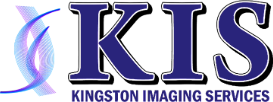What is an Echocardiogram?
An echocardiogram, often referred to as an “echo,” is a non-invasive, safe, and effective ultrasound test used to evaluate the structure and function of the heart. It uses high-frequency sound waves to create detailed images of the heart’s chambers, valves, walls, and blood vessels. This diagnostic tool is essential for assessing heart health and diagnosing various cardiac conditions.
Why is an Echocardiogram Performed?
Echocardiograms are performed for a variety of reasons, including:
- Evaluating Heart Function: To assess the heart’s pumping strength and detect abnormalities in the heart muscle.
- Examining Heart Valves: To observe the operation of heart valves and identify any leaks or blockages.
- Diagnosing Conditions: To aid in the diagnosis of heart conditions such as heart murmurs, heart failure, and cardiomyopathy.
- Monitoring Heart Disease: To track changes in heart function over time in patients with known cardiac issues.
- Checking Congenital Heart Defects: To investigate potential heart defects present at birth

Types of Echocardiograms
There are several types of echocardiograms, each tailored to specific diagnostic needs:
- Transthoracic Echocardiogram (TTE): The most common type, where a transducer is placed on the chest to create images of the heart.
- Transesophageal Echocardiogram (TEE): Offers detailed images of the heart by inserting a specialized probe into the esophagus.
- Stress Echocardiogram: Conducted during or after physical exertion to evaluate how the heart performs under stress.
- Doppler Echocardiogram: Measures the speed and direction of blood flow through the heart’s chambers and valves.
How to Prepare for an Echocardiogram
Preparing for an echocardiogram is simple and requires minimal effort. Here are a few steps to ensure a smooth procedure:
- Clothing: Wear comfortable clothing. You may be asked to change into a hospital gown for the test.
- Diet: In most cases, you can eat and drink normally before a transthoracic echocardiogram. However, fasting may be required for a transesophageal echocardiogram.
- Medications: Continue taking your regular medications unless instructed otherwise by your doctor.
- Avoid Caffeine: If you are scheduled for a stress echocardiogram, avoid caffeine for at least 24 hours before the test.
What to Expect During the Procedure
The echocardiogram procedure is painless and typically takes 30 to 60 minutes. Here’s what you can expect:
- Preparation: You will be asked to lie on a table, and a technician will apply a gel to your chest to enhance sound wave transmission.
- Imaging: The technician will move a handheld device called a transducer across your chest. The transducer emits sound waves that bounce off your heart and create live images on a monitor.
- Breathing: You may be asked to change positions or hold your breath briefly to capture clearer images.
- Analysis: After the test, the images are analyzed by a cardiologist to provide detailed insights into your heart’s health.
Benefits of an Echocardiogram
An echocardiogram offers numerous advantages, such as:
- Non-Invasive: No needles or incisions are involved, making it a safe option for most patients.
- Real-Time Imaging: Provides immediate images for quick assessment of cardiac function.
- Comprehensive: Delivers detailed information about the heart’s structure and operation.
- Versatile: Suitable for diagnosing a wide range of heart conditions in patients of all ages.
Why Choose us for Your Echocardiogram?
At KIS, we are committed to providing state-of-the-art echocardiogram services with a patient-centered approach. Our team of experienced cardiologists and certified technicians utilize the latest ultrasound technology to deliver accurate and timely diagnoses. We ensure a comfortable environment, prioritize your health needs, and are dedicated to guiding you through every step of the diagnostic process.

